Soon after his return from USA Ratan Tata made entry into the Industrial empire of the family.
It was not a razzle-dazzle affair but more like a low level new employee joining duty. His uncle JRD Tata was the Chairman of the Group. When JRD had joined the Group he had worked many years as unsalaried apprentice and sweated it out. He put Ratan Tata through the same drill. At JRD’s advice Ratan Tata gave up an IBM job he had landed.

JRD sent him to Jamshedpur to learn the works of Tata Steel Plant minutely. There Ratan Tata worked on the steel plant floor in blue uniform like any other worker. He shovelled limestones and stood by the side of burning furnaces. He carried out the assignments as ordered to prove his usefulness and dedication to toil.
His start of managerial duty was also lacklustre. He was given the charge of NELCO and TELCO when in licence-pemit regime running these enterprises was a challenging task. To get those two companies on the rails Ratan Tata had to work hard. It was more like running a Hell-co. Ratan Tata was facing a hell of problems and difficulties. The detractors began to say that Ratan Tata lacked the capabilities of management and resourcefulness. He was removed from the managerial post of Nelco, a radio manufacturing enterprise. Ratan Tata’s ability was under cloud. But the reasons of the failure of Nelco-Telco were not his inability. The critics kept mum about the real causes.
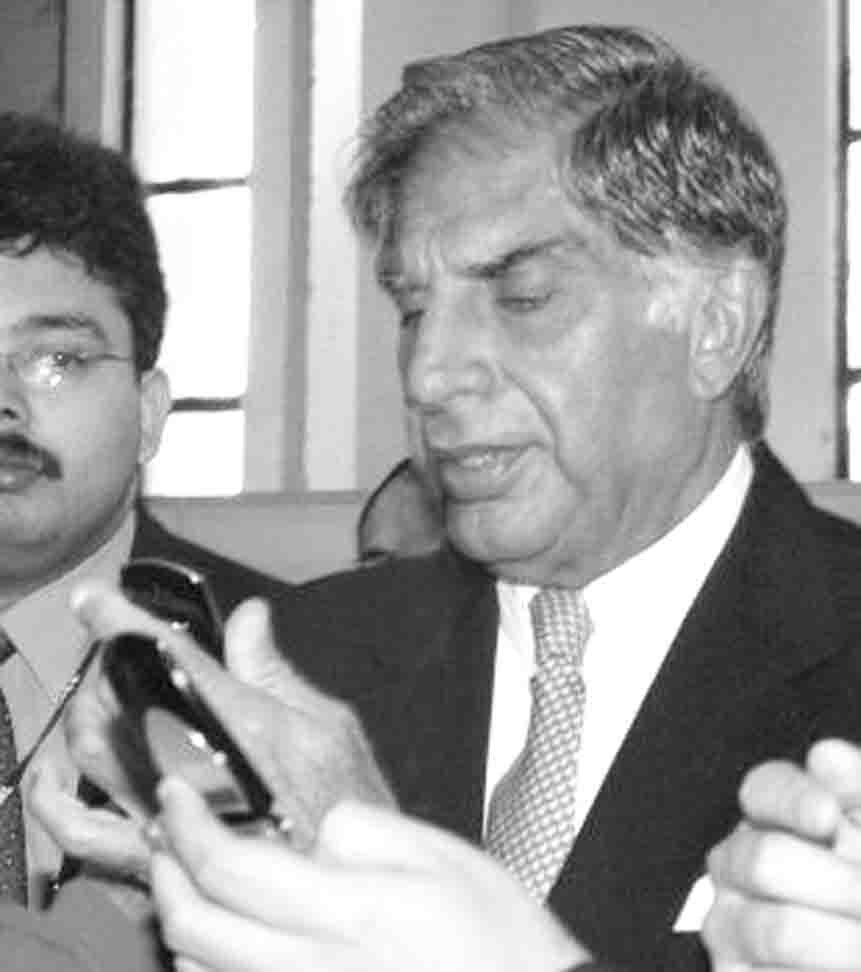
It was a frustrating phase of Ratan Tata’s professional life. He analysed the failures. It gave him a new insight and he learnt to understand difference between success and failure. He felt he needed getting away and arming himself with some more education to gain extra qualification. For this reason he again went to USA and completed a course in higher business management in 1975 at the age of 38. Even as a part of Tata Group he continued to learn, get educated and gain experience. Under JRD’s guidance he kept assimilating the practical application of industrial management.
On resuming the responsibilities again he began to play role of the lieutenant of JRD and man for all seasons. In this leadership role Ratan Tata laid the foundations of high technology enterprises and upgraded several undertakings. As strategist of Tata Group Ratan Tata played the role of a ‘think tank’.
But JRD held the command of control room at the top. It was the change over period from rigid socialistic economic regime to liberalisation plus reforms. Old beliefs and traditions were dying and new concepts were taking birth. The industrialists and business enterprises were gaining new role in the progress and welfare of the country. The central industrial policy changed for the better and some public sector areas were opened to the private sector.
In the changing global environment the government also realised that liberal economic policies were the need of the hour. For a better economic growth rate several countries had taken recourse to liberalisation and had reaped benefits. India too appeared to be chainging from socialist tights to liberal outfit.
Ratan Tata took advantage of the new opportunities and set up new industries with an eye on the future expansion or diversification. Earlier these areas were reserved for public sector only.
During this period India got a new player in Dhirubhai Ambani, a true corporate king who raised capital through stock shares attracting a huge backing of small investors. It was a kind of share capital revolution in India. The ground rules for share market were framed. For capital an industrialist now no more had to beg from banks and financial institutions. Business house myth was breaking and management capability and talent was becoming the qualifying mark. Ratan Tata was keeping a close watch on these new developments in business and industrial world.
Ratan was totally dedicated to his industrial empire. He kept away from the razzle-dazzle parties of Mumbai. His dress also remained traditional Parsi. With JRD he toiled to give firm grounding to the Tata industries.
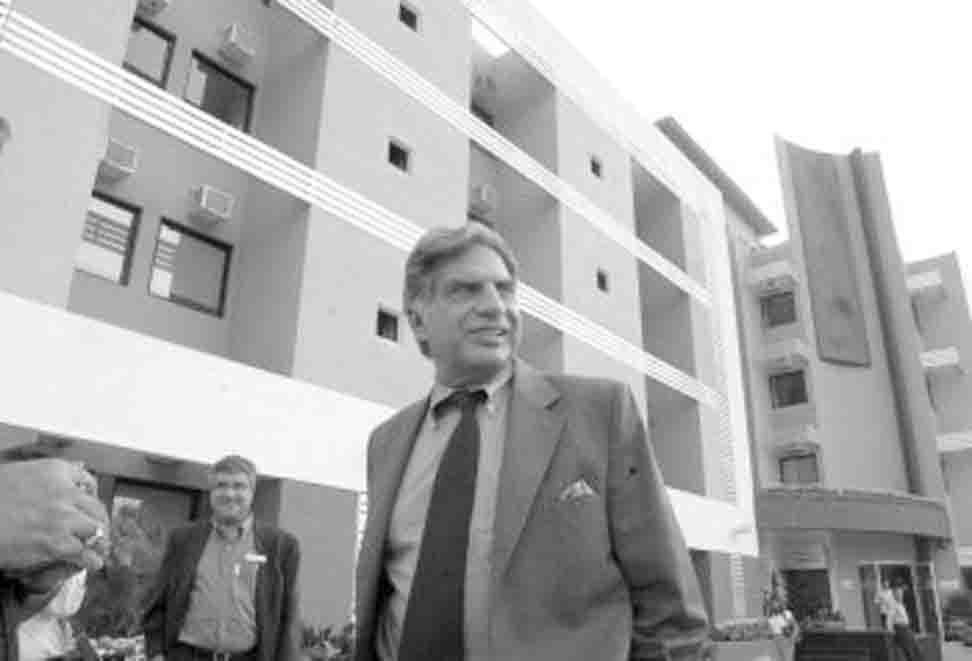
In 1991 JRD retired and Ratan Tata took over as the new Chairman of Tata Group. When he started his top job innings Rusi Modi and A.B Kerkar had already dug in and created their own burrows within the empire. When Ratan Tata began his ‘Car Campaign’ with a capital funding of 1500 crore rupees those people were laughing up their sleeves taking it for a foolish venture. Because of Ratan Tata’s 1962 failures many were doubtful of his talent and capability.
Ratan Tata was biding for his time to let his ideas bear fruits of success to reply his critics with confirmed facts and figures.
When Ratan Tata took charge the Group was earning only 5% royalty from the foreign countries. But after their merger with Tata Consultancy Services the percentage shot up to 20% in the year 2002-03. TCS also became a world player. TCS was set up by Ratan Tata in the decade of 80s.
Records of incredible successes
Today, nobody doubts the capability and courage of Ratan Tata in organisational and management skills in running an industrial empire and taking it ahead crossing new milestones. His serene mind thinks attuned to the demands of the time. Ratan Tata made his initial failures stepping stones to incredible future successes and achievements.
In February, 200 Ratan Tata took over Tetley Tea Company of England in 407 millions dollars. Such take over involving a huge pay off was unheard of in India. It was the 21st take-over by Tatas. In the foreign trade of Tata Group the huge spurt was largely due to Tata Motors. The grand success of Tata Motors venture made the success of Tata Group the biggest event of the last millenium of Indian industrial world. It finally silenced all the detractors and critics of Ratan Tata. Most of them converted into his admirers.
Then, Tata Group staged another coup by taking over the giant Corus Steel Company, the biggest event of the steel sector that year. People had still not forgotten ‘Glessue’ New York take over of 567 million dollars. It was Tatas’ 22nd take over and the biggest attempt. For Corus take over several big steel players of the world were in the hunt. Tatas beat them all. The economic surveyors had not even bothered to assess the purchasing power of Tata Group. ‘Time’ magazine termed this deal as the 6th best buy of the year.
The one hundred year old Tata Steel and Tata Group’s total market has increased to Rs. 3,00,000 crores. In the year 2006-07 Tata Steel Group’s total earnings were assessed at Rs. 1,39,994 crores. These figures speak for themselves and Tatas. The world corporate bodies was taken aback when Ratan Tata paid off 21 billion dollars for the take over of the Anglo-Dutch ‘Corus Steel Company’. From the 9th cloud the soul of Jamshedji must have smiled down. The adoption of Naval Tata and grooming of his son Ratan Naval Tata to take charge of the legacy of Naushervanji and Jamshedji in the fourth generation run seems to be the work of destiny. The most admirable aspect of all the Tatas has been their consciousness towards their duty to poor of the society and the nation. The humanitarian concerns remained uppermost in their mind. The poverty and population problem troubled their minds as they were hindering the progress of India and frittering away the gains.

Today’s under the chairmanship of Ratan Tata a number of industrial and busienss ventures are prospering. The profits of Tata Group have multiplied. The prominent ventures of Tatas are : Tata Steel, Tata Motors, Tata Power, Tata Consultancy Services, Tata Tea, Tata Chemicals, Indian Hotels
Group and Tata Telecommunications. All these ventures are in various ways beneficiaries of Ratan Tata’s vision and endeavour.
The business activities of Tata Group is spread over 85 countries of six continents. To 80 countries Tata products are exported and distributed. The total number of workers and officials employed by Tata Group is roughy 2,89,500. 27 companies of the Group are listed as ‘Public Limited’.
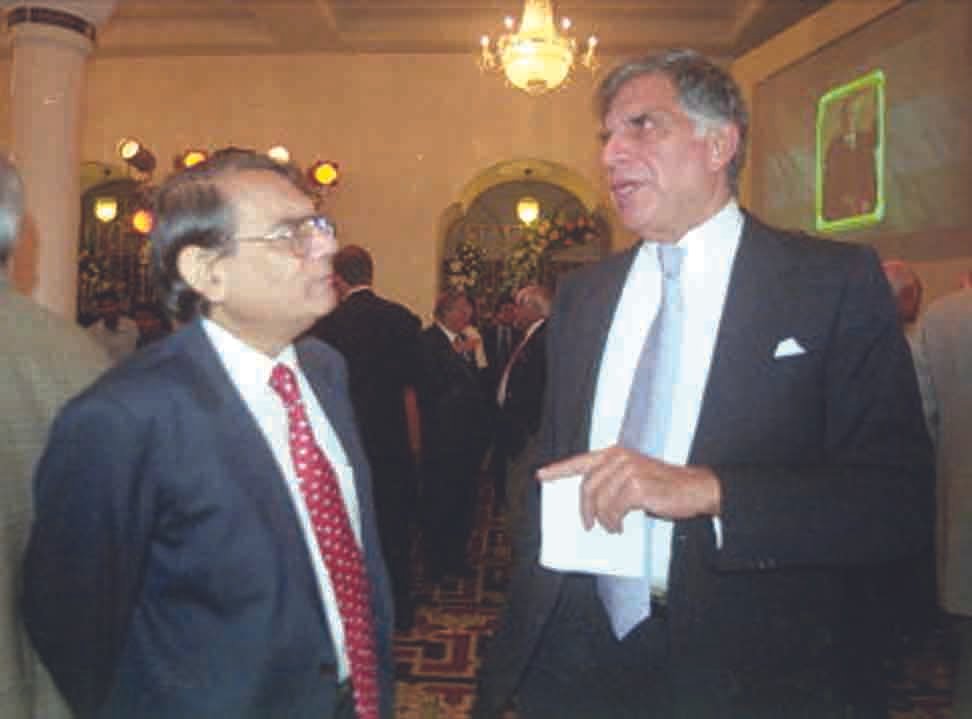
Deputy Governor of RBI
Tata Group is operating 98 enterprises, divided into seven business categories : Information Systems, Communications, Engineering, Materials Services, Energy, Consumer Products and Chemicals.
Leadership-based on trust
Tata Group is recognised all over the globe as a trustworthy business system. Ratan Tata, while leading Tata Group is always conscious of his responsibility of keeping Tata products and services based on the trust of the consumer. That trust has to be kept at all costs and never betrayed. The trust of the consumer in Tata Group is the most valued asset and objective. For this purpose Ratan Tata has set five benchmarks :
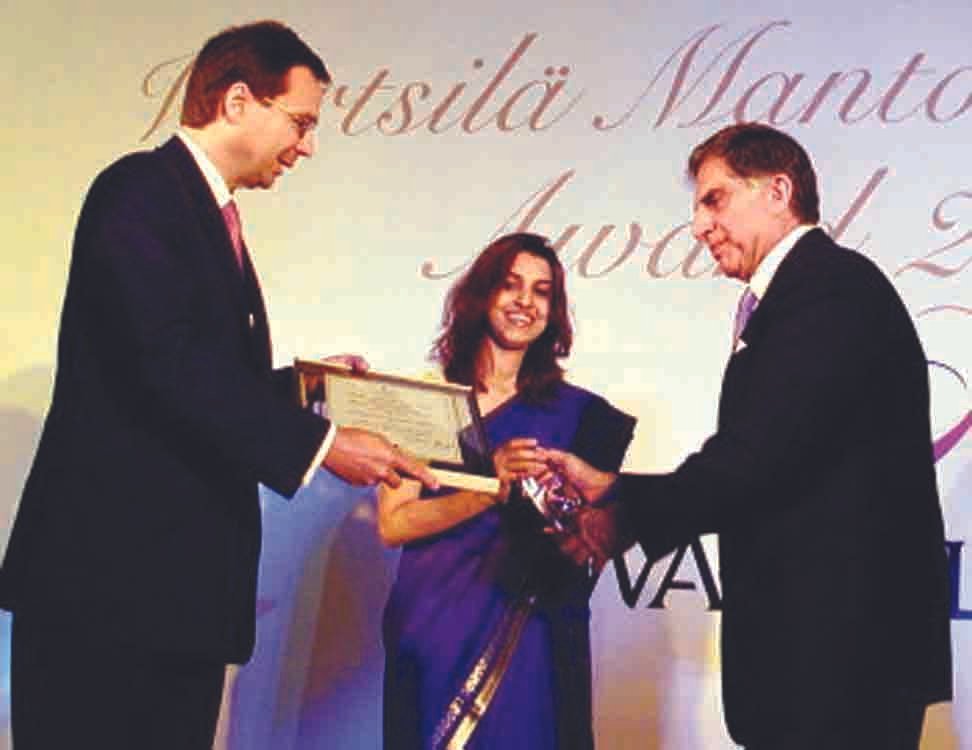
1. Honesty—Honesty is the first priority in the business dealings of Tata Group. The motto is ‘Addrss the consumer with truthfulness and transparency’. Hence, to win the trust and approval of the consumer Ratan Tata orders the adoption of the policy of honest dealings.
2. Mutual Understanding—Tata Group cares for the honour of its associates, co-workers and consumers and tries to fulfil its humanitarian and social obligations. The class of consumers it provides its services to must have the benefit of mutual understanding with Tata Group, the product supplier or service provider.
3. Quality Consciousness—Tata Group is ever conscious of its moral duty to keep its products and services at par with world standards in quality. The effort to upgrade the quality is always on.
4. Unity and Friendliness—Tata Group makes an honest bid to forge unity and friendship with all its workers, associates, consumers and collaborators (spread allover the world). With tolerance, patience and spirit of cooperation Tata Group tries to make relationships sweeter and stronger to achieve the unity in intent, act and purpose.
5. The Sentiment of Responsibility—Tata Group believes in making an earnest promise to accept its responsibilities to uphold the credibility of its products and services. Group guarantees the consumers that any fault in its products or services would be corrected as soon as possible. A consumer can not be satisfied without acceptance of responsibility by the product manufacturer or service provider.
Ratan Tata sees to it that his Group follows above five ideals as a policy directive. He believes that these five important factors guarantee the success of Tata Group.
The management structure
For the efficient running of Tata Group activities two overseeing bodies have been instituted. They frame the business policies and serve as overall watch dogs. The following are the two offices :
1. Group Executive Office (GEO)—This office regulates or re-orders the regulation of business activities of Tata Group. This group frames the rules or draws up programmes in respect of business, human resources and environment. It is also responsible for implementing those rules or the programmes. Besides this its primary objective is to coordinate and harmonise various activities of Tata Group and create mutual understanding. It also underlines the strong points and weaknesses of Tata Group. The office analyses and clarifies the issues and points that require special attention and policy matters. It also categorise the busienss departments of the offices and the various enterprises into seven classifications. GEO evaluates the business policies of companies and updates directive principle of a company or a sector to upgrade or improve its performance. The office then orders the concerned company about the new policies or reforms it must adopt.
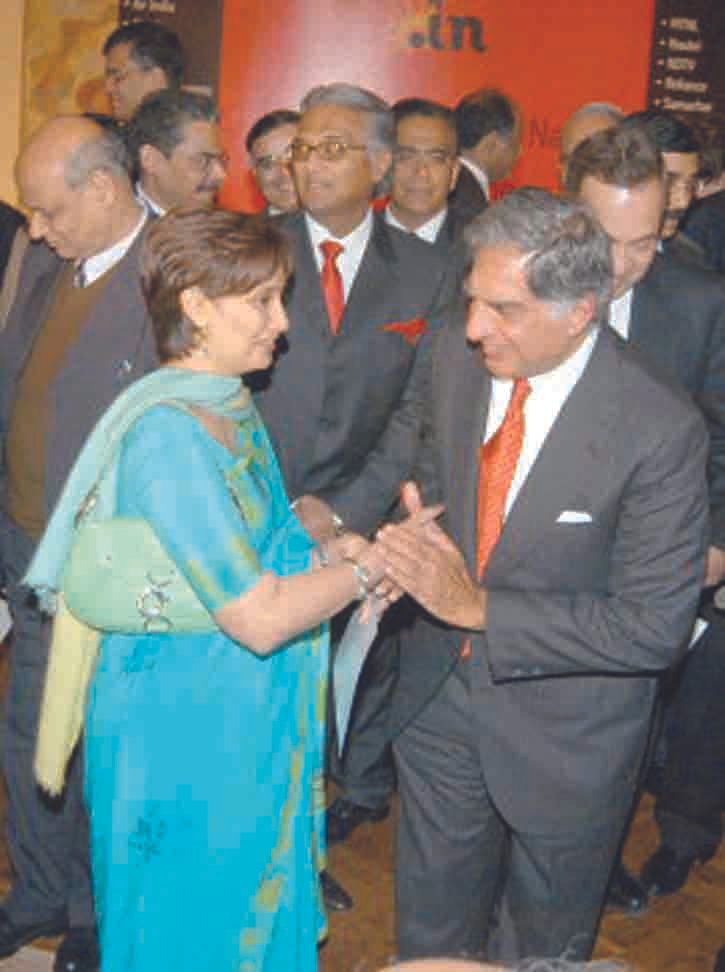
This high powered office is managed by R. Gopalakrishanan, Ishad Hussain, Kishore Choker, Arun Gandhi and Allen Roseling besides the chairman, Ratan Tata.
2. Group Corporate Centre (GCC)—The GCC is expected to keep close contact and coordinate its activities with Group Executive Office in respect of future strategies and directives of Tata Group and implementations of the directives. Besides other members this centre also includes all the members of GEO.
It simply goes to show how Tata Group is serious about the policy and strategy decisions. For coordination and harmony amongst extensive business chains both the above offices play an important role. The success of Tata Group is largely due to these two management structures.
Personality analysis
Seventy years old Ratan Tata is known more for his humility than being the top boss of vast business group. He is one of the world’s 25 top industrial personalities. He is yet unmarried. Ratan Tata is married to Tata Group and it is his family. For the sake of his industrial and business empire he did not wish to start his own family. That is some commitment. For his own purpose he uses 12,500 dollar Tata Indigo Marina Wagon and drives himself. Weekends he spends alone in his beach house. The house is his own self-designed. His two dogs keep his company in the private hours. Ratan Tata likes to travel alone even on long journeys. He hates excuses and prevarications.
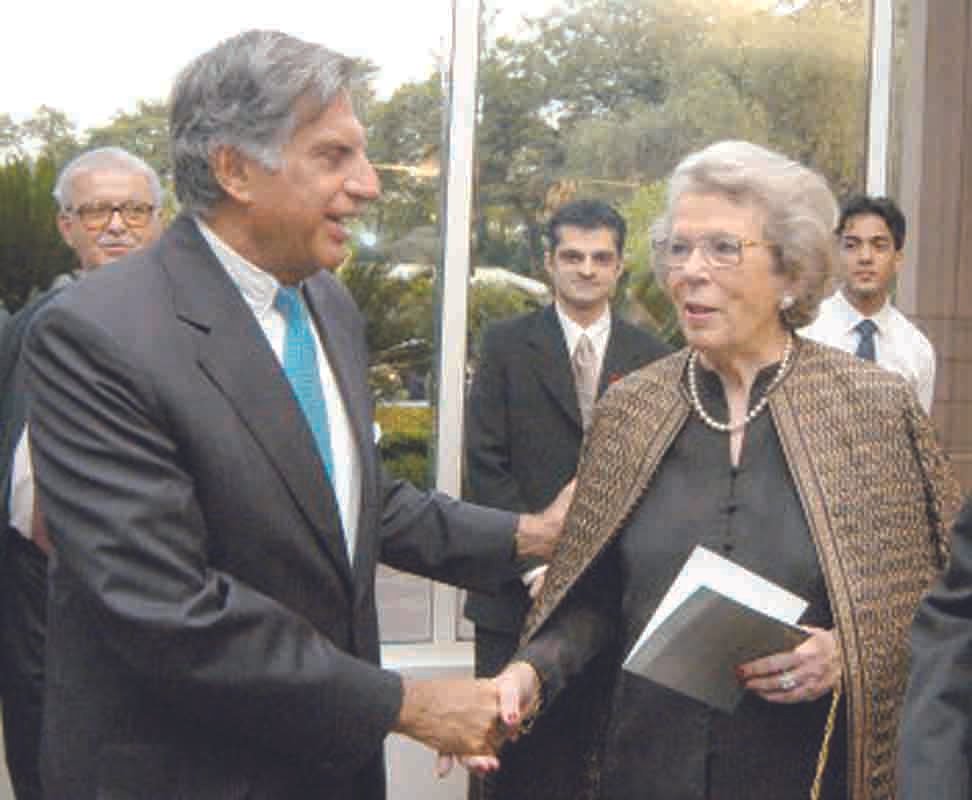
a release function of a book titled “Horizons”
As the top man of corporate world he does not act arrogant. He treats his subordinates with extremely soft touch. It beget him extra respect and honour from others. Inwardly he is a very fearless person and dares to take risks and faces challenges. Ratan Tata is an expert pilot and flies his own business jet. He uses his Falcon-2000 executive jet for his inland travels. In February, 2007 he surprised everyone by flying Lockhead F-16 and Boeing F-18 fighter jets of USA. It proved his capabilities as a pilot.
Ratan Tata has displayed remarkable firmness and daring in business dealings. The deals struck by him in the past years are ample proof that he does not feel anxiety or fear even while making a big deal, be it the case of setting up of the Truck Unit of South Korean company Daewoo or Indonesia’s biggest coal mine deal or establishing steel mills in South-east Asian countries or Corus take over, he showed incredible business intrepidity. In big hotel deals of Pierre New York, Ritz-Carlton of Boston and Chemeden of San Fransisco he revealed his fearlessness.
In 2004 Ratan Tata struck a 130 million dollar deal to buy undersea Taico International Telecom Cables. It will help Tata Telecom in conducting the transmission of international phone call efficiently. 91 million dollar take over of Inket International of Britain helped Tata Group to become a major exporter of technology.
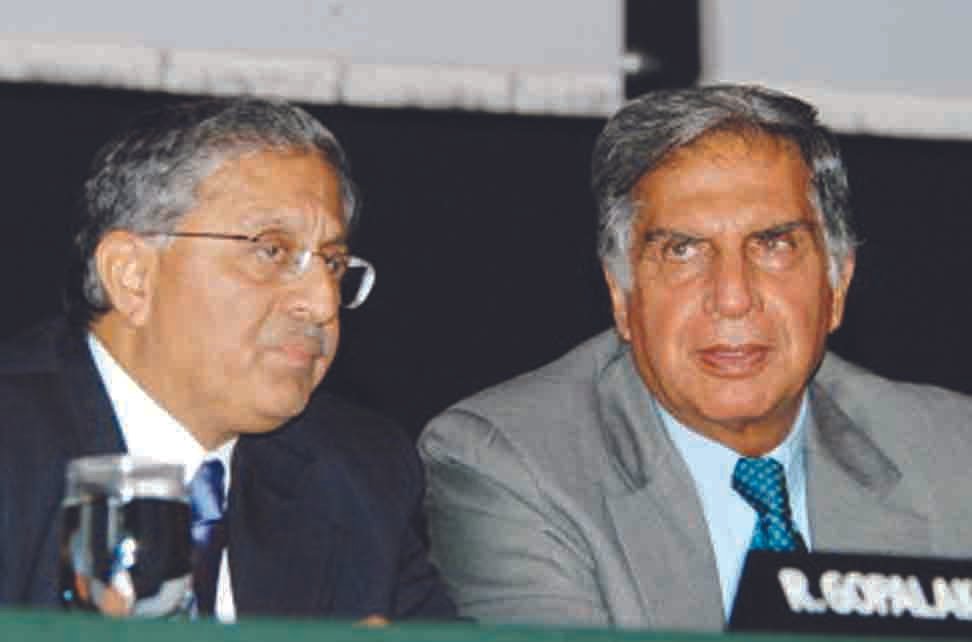
The most famous take over of Corus Steel became a major steel industry news. It would have been an unimaginable thing only some years ago. Ratan Tata surprised everyone by that mega deal. After that deal Tatas have gone into the production of more items having earned a global recognition. Five fold increase in gross production is envisaged. In the motor industry Tata Motors has registered its presence strongly at global stage. To really become a world class automobile player Tata Group has aquired Jaguar and Landrover from the Ford Motor Company of Chicago (USA) that created waves all over the world. Above all Tata Group is planning to invest Rs. 22 billion over a period of next 5 years in steel, automobile, telecom, power and chemicals sectors.
Five years ago business became a global activity and companies internationalised their operations. Ratan Tata had carved a niche for himself in global industrial field. As chairman of Tata Group he had gained due recognition of all. He drew up his business strategy and policies with a new thought inspired by Chinese example. Why were Chinese products entering the Indian markets in a big way? Ratan Tata made comparative studies of Chinese and Indian products and services. He found that Chinese always thought big. Be it constructing a port or a highway they did it at mega scale. The Chinese always thought in terms of the biggest, tallest, spankiest, largest, best, latest, highest, longest etc. Their power was limitless big thinking and creativeness. India also needed to think with wide mental horizons.
With that idea Ratan Tata decided to use India’s limitless talent and capabilities on global stage. He wanted India to become an international power in business, trade and industry. Now it can be claimed that due to Tata Group India has been able to establish itself on the international stage and become accepted like China, Russia or Brazil. It was an idea and thinking of Ratan Tata that did the trick. Ratan Tata had deeply studied and analysed the cases of emerging economic powers and their similarities with India. They had cheap labour available, high technological education and vast natural resources.
Upon those conclusions Ratan Tata made investments in the new ventures that could become new sources for further build-up. With a well crafted strategy he brought his group on the world stage through various industries. It was a challenging task. The economies were on the upswing. The upswings and downswings had hit the Asian markets before. Establishing new industries in upswing period could be risky and costly. There were several cases of companies having to shut down to these swings in Asia. Daewoo, Charoin Pankfend and Salim Group were living examples of this.
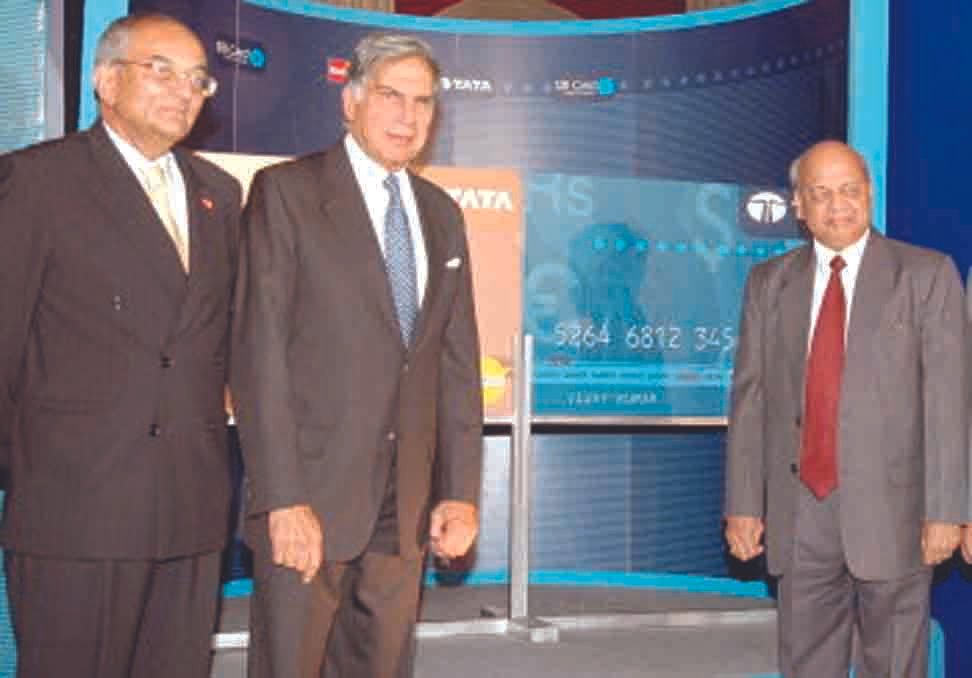
Tatas were faced with domestic challenge as well. Ratan Tata decided to ride on the bullish market and take a long lead over others. Risks had to be taken. There was possibility of Tata Group failing against Asian giants in the new multinational business structure. But Tata Group proved that it had the capacity to re-establish itself in adverse times. Ratan Tata was captaining the Tata ship and it was sailing fast on the high seas of world business.
The two modern captains of Tata Group need a special mention namely, JRD Tata and Ratan Tata. JRD era was that socialistic economic system when the ship anchor was entangled into heavy rocks of licences and the sails were not permitted to be raised up. JRD could only fret, fume and curse from his Tata Group ship. In the liberalised era Ratan Tata found new winds blowing, the anchor was free and there was no restriction on the sail masts. He only needed to navigate the sea with care, courage, expertise and workout correct routes. Ratan Tata was not found wanting in any aspect. He correctly assessed the new situation, possibilities and opportunities.
He ventured into new promising areas of automobiles and telecom. Ratan Tata wants to create a respectable space for Tata Group even in rich and advanced nations and establish its credibility and capability.
He says Tata Group that began its journey in 1870 was based on the firm foundation of values, ideals and traditions that will ever propel it forward and forward. And higher and higher it should rise because of lofty ideals, cherished by the successors in original noble spirit.
In reply to a question about future challenges Ratan Tata said, “The two main challenges are to uphold the supremacy of qualifications and moral values. We shall meet it. As the Tata Group will grow, expand and diversify we shall have to upgrade managerial capacities and abilities upholding the moral standards set by ‘founding fathers.’
Someone asked, “What difference do you find between old times and the current one?”
“I think, if we gloss over the period before 1991 Tata Group consisted of about one dozen enterprises. The Group had set up low profit industries like cosmetics, paints and cement etc. But after 1991 we set up new industries or business in retail trade, telecom, biotech and other fields. Now Tata Group has about 100 companies with 300 subsidiaries. In this way we are handling forty types of businesses or industries. In some places the group needs to be cut in size and streamlined. In this matter I have not been very successful so far.”
His forward thinking has paid high dividends to the Tata Group and enhanced the economic clout of the country internationally.

